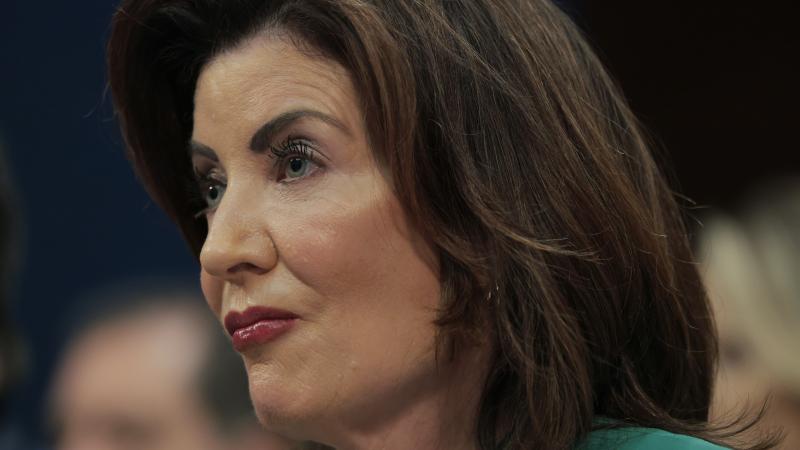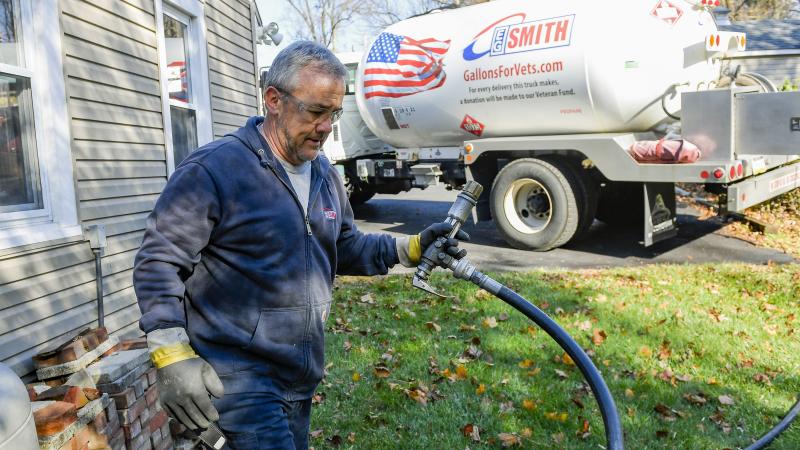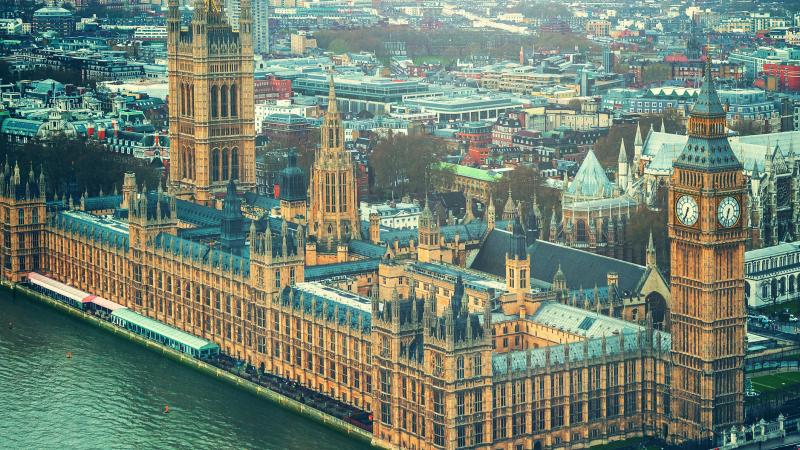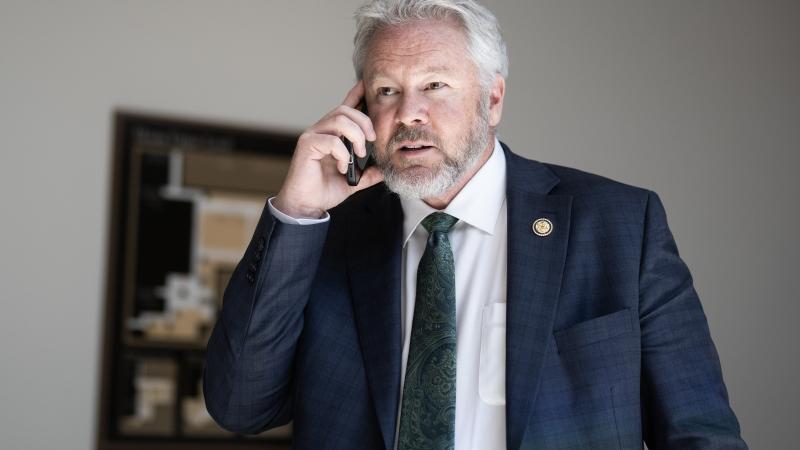Biden admin mandates EVs but can’t build more than seven charging stations costing $7.5 billion
"The Biden administration doesn't know how to get projects off the ground in a timely fashion. That's just bloated, big government working ineffectively and wasting money in the process,” Gabriella Hoffman, director of the Center for Energy and Conservation at Independent Women’s Forum, said.
Transportation Secretary Pete Buttigieg was asked on CBS News' "Face the Nation" about the $7.5 billion taxpayers have been levied for a nationwide EV charging station network. In the over two years since the funding was announced, the Federal Highway Administration (FHA) has managed to produce only seven, despite the announced plans call for a half million stations being built six years from now by 2030. Buttigieg was unfazed when asked about the numbers.
“That's the absolute very, very beginning stages of the construction to come,” he said, and insisted the 500,000 stations would come to fruition by 2030.
Gabriella Hoffman, director of the Center for Energy and Conservation at Independent Women’s Forum, told Just the News that, as reflected in Buttigieg’s responses to questions about the glacial pace of the charging station buildout, the Biden administration’s climate agenda contains an unwavering faith in government.
“It's thinking that the federal government can do anything for the most part effectively and in a timely fashion. But not surprisingly, much like everything else we've seen relating to energy and just any other issue, the Biden administration doesn't know how to get projects off the ground in a timely fashion. That's just bloated, big government working ineffectively and wasting money in the process,” Hoffman said.
One size fits all
Wyoming’s experience provides an example of why $7.5 billion dollars from the federal government can only produce a few stations per year. The federal guidelines for the program have a one-size-fits-all formula, but the characteristics of every state vary greatly from the image Washington, D.C. bureaucrats have of "flyover country."
The Wyoming Department of Transportation (WYDOT) pursued the federal funds to build out charging stations at intervals along the interstates that crisscross the state. The state has less than 800 EVs registered, but tourism is important to the state’s economy. So, the state hoped to make the interstates more welcoming to EV-driving tourists.
The Cowboy State has fewer people than any other state in the country, and is second only to Alaska in low population density. This means that between its small towns are long stretches of open road with little infrastructure to support charging stations.
The federal guidelines for the funding required stations be placed certain distances apart and within a certain distance of interstates, which wasn’t going to work for Wyoming. So, the Wyoming Department of Transportation (WYDOT) submitted a plan that requested some exemptions to the federal guidelines. The federal government denied most of the exemptions.
It took months for WYDOT to get some guidance on why the exemptions were denied and negotiate a plan that would work for Wyoming and that the feds would accept. Finally, the state and feds agreed to 17 stations for $24 million over five years. However, with such low EV traffic, none of the stations were expected to be profitable before the funding ran out.
The program requires a 20% match from private businesses, which would build and operate the stations. In January, WYDOT issued requests for proposals to gauge private-sector interest, and it paused the program during that process.
“We are still progressing to get the plan that best fits Wyoming,” a WYDOT spokesperson told Cowboy State Daily.
Other states have reported problems meeting the electricity demand the stations will require, uncertainty with filling funding gaps, and difficulty meeting the “buy American” requirements in the program.
According to Bridge Michigan, Michigan will have to spend $134,000 per plug-in port, meaning the $110 million in federal funding it has will only buy about 800, or 8% of the approximately 10,000 public-access fast chargers that Michigan Democratic Gov. Gretchen Whitmer has promised by 2030.
Unicorn dreams
From the start of his tenure, President Joe Biden set out with an ambitious plan to put as many Americans into electric cars as possible. Dozens of U.S. states have also mandated that gas-powered vehicle sales be phased out. For a brief couple of years, it appeared the transition to EVs was certain.
By the time the EPA released its tailpipe emission standards in April, requiring 66% of all cars sold to be electric, the EV transition was looking far less certain. More than 5,000 dealerships have campaigned against the mandates as their lots filled up with EVs they couldn’t sell, automakers have lost billions of dollars on their EV lines and scaled back EV transition plans to match the slower pace of consumer interest.
“We have seen a lot of Americans of all stripes reject EV mandates. They don’t want to get EVs, and the manufacturers are now responding to consumer lack of interest,” Hoffman said.
Globally, transportation accounts for about one-fourth of carbon dioxide emissions. By mandating that Americans drive electric vehicles, EV mandate proponents argue, the U.S. could make a significant dent in its emissions.
While EVs don’t produce emissions while driven, electric vehicles require six times more minerals to produce than their gas-powered counterparts, and that means a lot more emissions to produce them. Whether there’s a net reduction over the life of the vehicle isn’t certain. Mark Mills, senior fellow with the National Center for Energy Analytics, argues that the amount of emissions in producing an EV depends on so many factors that no one can say for sure if there’s any net emissions reductions.
Despite all these roadblocks, in the CBS interview, Buttigieg argued in favor of the mandates and insists that the EV transition is happening.
“They don't have a balanced approach to things, and so they have these kind of unicorn dreams about wanting to have everyone find EVs, but it's extremely expensive,” Hoffman said.
For now, the administration is doubling down on policies despite goals that are appearing more and more unrealistic. Hoffman said that Biden is very beholden to the views of “climate activists on TikTok,” as evidenced by the risky decision to pause LNG export permits. However, Hoffman said, the American public is starting to reject Biden’s climate policies, and that could result in a shift in attitudes.
“If energy starts to become a dominant issue and people respond negatively to the EV mandates and to the suppression of energy production here at home, maybe that may compel them to change,” Hoffman said.
The Facts Inside Our Reporter's Notebook
Links
- asked on CBS News
- managed to produce only seve
- pursued the federal funds
- less than 800 EVs registered
- fewer people than any other state
- federal guidelines for the funding
- submitted a plan
- denied most of the exemptions
- state and feds agreed to 17 stations for $24 million
- spokesperson told Cowboy State Daily.
- Other states have reported problems
- According to Bridge Michigan
- ambitious plan
- More than 5,000 dealerships have campaigned
- automakers have lost billions of dollars
- scaled back EV transition plans
- consumer interest
- one-fourth of carbon dioxide emissions
- six times more minerals to produce
- Mark Mills
- in the CBS interview
- evidenced by the risky decision to pause LNG export permits
















